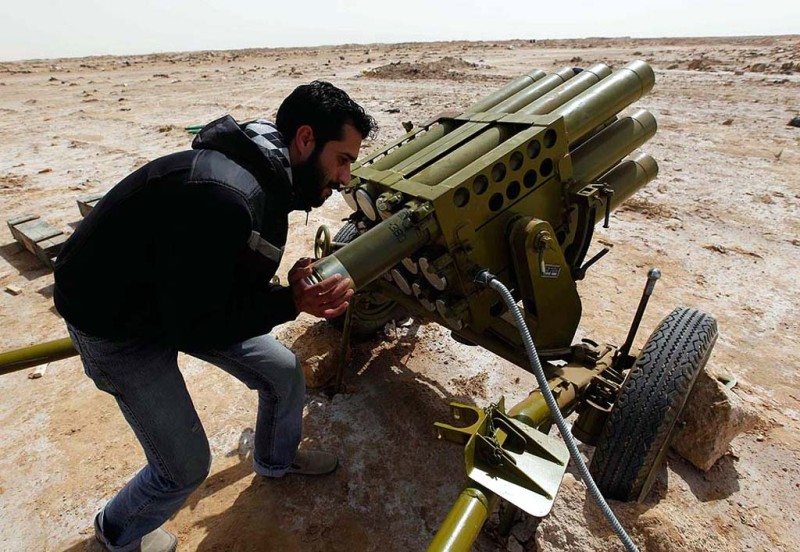Britain said Tuesday it is sending military advisers to help organize Libyan rebels, even as western powers denied they could soon break their taboo against putting foreign boots on the ground.
The announcement came as France strongly warned against sending any coalition troops into Libya, where a two-month revolt against Moamer Kadhafi’s regime has stalled and civilian casualties are mounting.
Foreign Secretary William Hague insisted the addition of about 12 military advisers to Britain’s diplomatic team in the rebel stronghold of Benghazi did not breach a UN resolution authorizing air strikes against Kadhafi’s forces.
“They’re not boots on the ground, this is not British ground combat forces going in… There is going to be no ground invasion of Libya,” Hague told BBC television.
Hague said the British advisers would not arm or train the rebels, but would help them develop organizational structures, communications and logistics and coordinating humanitarian aid and medical supplies.
“They’re people with the expertise in those sorts of things. They’re not there, I stress, to train fighting forces, to arm fighting forces or of course to take part in any fighting themselves,” he added.
The rebels “clearly lack that organisational experience and, yes, we do think that with that experience they will be able to save lives, in Ajdabiya, perhaps in Misrata,” he said.
With thousands clamouring to escape the besieged rebel city of Misrata, Britain said it would charter ships to pick up 5,000 migrant workers after a ferry rescued nearly 1,000 on Monday.
In Paris, French Foreign Minister Alain Juppe said Tuesday that he was “entirely hostile” to the idea of sending coalition ground troops into Libya — even special forces to guide air strikes.
Juppe brushed off a call from Axel Poniatowski, the influential chairman of the French parliament’s foreign affairs committee, for elite allied forces to be deployed to help identify targets for coalition jets.
“I remain, for my part, entirely hostile to the deployment of forces on the ground,” Juppe said.
He also played down reports that French troops were already liaising with rebel commanders at their Benghazi headquarters, insisting there was only a small French security team in the city to protect the French envoy.
A senior French diplomatic source admitted to AFP that a French officer had indeed been assigned to the rebel “control room” in Benghazi.
Juppe also called on NATO allies to help British and French jets break the siege of Misrata.
NATO jets and cruise missiles struck Kadhafi’s command and control centers late Monday in an apparent bid to increase the pressure on Kadhafi, but the alliance acknowledged the limits of air power.
Dutch Brigadier General Mark van Uhm, speaking in Brussels, conceded that Kadhafi’s tactic of using human shields and hiding tanks and other heavy weapons, especially around Misrata, has deterred some NATO missions.
Libyan rebel leader Mustafa Abdel Jalil however urged the coalition to push ahead and topple Kadhafi.
“Kadhafi will never give up power except by force,” Jalil said in Rome after talks with Italian Foreign Minister Franco Frattini.
Coalition powers have called for Kadhafi to stand down but have steered clear of suggesting that the UN Security Council resolution passed on March 19 enables them to topple him themselves.
Frattini said the opposition could be aided with military equipment and foreign oil sales, but like other western powers haunted by wars in Iraq and Afghanistan he too opposed an invasion of Libya.
“We don’t have many alternatives. One of the alternatives is the use of ground troops. Italy is not in favour of sending ground troops,” he said.
Frattini cited Jalil as saying that 10,000 people had been killed and up to 55,000 wounded in the conflict so far.










